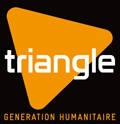Pakistan faces significant humanitarian and development challenges. Poverty, inequality and limited access to basic services persist, particularly in rural areas and among marginalized communities. Inadequate health care, education and sanitation contribute to social and economic vulnerability.
The country is also critically exposed to natural disasters such as floods and droughts, which cause population displacements, damages to basic infrastructure and disrupted livelihoods.
The Sindh province was severely affected by heavy torrential rains and flash floods in July and August 2022, leading to the death of nearly 2.000 persons, causing major damages to infrastructures and housing, destroying the livelihoods of tens of thousands households and exposing millions of people to waterborne diseases and widespread food insecurity.
A total of 1739 deaths, 12.867 injuries and the loss of over 700.000 heads of livestock was reported. Some 11,665 mud houses were completely destroyed, while more than 900,000 houses were partially damaged. In addition, 1,108,264 households were displaced within the country. 15,500 people affected by the rains have lost everything and have been displaced. In Sindh, an estimated 300,000 people remain homeless.
More than 1.4 million hectares of crops have been decimated and more than 386,039 houses have been submerged. Over 30,000 villages have been flooded.
TGH’s intervention (approximately 1500 characters)
TGH intends to focus its efforts on the six worst-affected districts of Sindh province (Dadu, Larkana, Nowshero Feroze, Khairpur, Benazirabad, Sukkur), which have been identified through discussions with key stakeholders, including representatives of the federal and provincial governments and other INGOs working in the area.
The floods have washed away a large number of homes, forcing thousands of people to live in tents miles away from their flooded villages and towns. They have also destroyed standing crops, leaving farmers and traders destitute. In light of this, TGH is planning a long-term, multi-sectoral response to the needs of those displaced and affected by the floods.
This includes an emergency water, sanitation and hygiene (WASH) response in the six areas identified, integrating both access to drinking water for the population and the promotion of better hygiene behaviours aimed at creating barriers to limit the spread of waterborne diseases. Schools in the areas will also be rehabilitated with water and sanitation facilities to improve learning conditions, and students will receive hygiene education to create a strong and lasting behavioural change.
At the same time, TGH plans to work on strengthening food systems and restoring livelihoods. Through this part of its activities, TGH also aims to support the emancipation of women and their economic integration into society.
